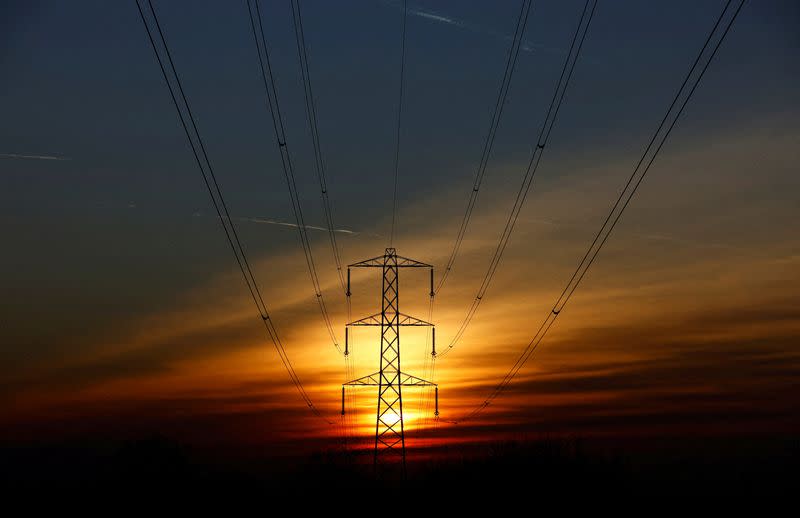Britain to pay homes to use less power again this winter

By Susanna Twidale
LONDON (Reuters) - Britain’s National Grid will implement its scheme to pay homes to cut electricity use and help prevent power shortages again this winter, it said, following the success of the service last winter when it was first launched.
Under the demand flexibility service (DFS), homes that signed up with their suppliers were paid, usually via money off their bills, for turning off appliances such as ovens and dishwashers during a specific period when electricity demand is high.
Some 1.6 million British homes joined the scheme last winter, saving over 3,300 megawatt hours (MWh) of electricity enough to power around 10 million homes.
National Grid’s Electricity System Operator (ESO) said it hopes to expand the number of participants and said a survey carried out on its behalf showed 83% of those who took part last winter said they would do so again.
“Participants highlighted satisfaction from managing the challenge, rewards earned, and being part of a national collective effort as the main benefits they experienced from participating in the scheme,” the ESO said.
National Grid ESO will later this year publish its outlook for expected electricity supply and demand this winter.
“While the ESO’s early view of winter sets out that system margins are expected to be slightly higher than last winter, as a prudent system operator the ESO is continuing to build further resilience,” it said.
The ESO warned last year that homes could face three-hour rolling power cuts over winter 22/23 if the country was unable to secure enough gas and electricity imports. It launched the DFS as part of its tool box to help prevent cuts.
The ESO said consumers and business should be able to sign up to the service in the coming months once regulator Ofgem has approved it.
(Reporting By Susanna Twidale; Editing by Susan Fenton)

 Yahoo News
Yahoo News 
